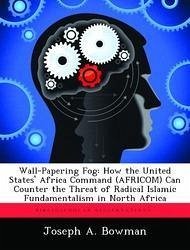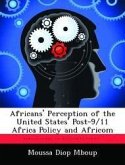Throughout history, terrorist organizations have attacked nation-states using increasingly more sophisticated methods of destruction. The attacks on 11 September 2001, demonstrated a higher level of commitment by state and non-state actors to destroy nations that refuse to submit to their radical Islamic view of the world. On 6 February 2007, President Bush directed the establishment of US Africa Command, or AFRICOM. The question that this monograph will answer is the following: How can the AFRICOM counter the threat of radical Islamic fundamentalism in North Africa? The United Nations Statistical Division definition of North Africa includes the countries of Algeria, Egypt, Libya, Morocco, Sudan, Tunisia, and Western Sahara. However, this monograph will address Algeria, Libya, Morocco, Tunisia, and the disputed territories of Western Sahara. Egypt will remain in the US Central Command (CENTCOM) Area of Responsibility (AOR). This paper will use a comparative analysis approach to evaluate the social, political, and economic issues that are resident in each country. This monograph will investigate some of the primary issues that AFRICOM will have to address in North Africa such as governmental structure, finance reform, the disputed Western Sahara region, the availability of equal education for all citizens, and the rights of women and Berbers.
Hinweis: Dieser Artikel kann nur an eine deutsche Lieferadresse ausgeliefert werden.
Hinweis: Dieser Artikel kann nur an eine deutsche Lieferadresse ausgeliefert werden.








